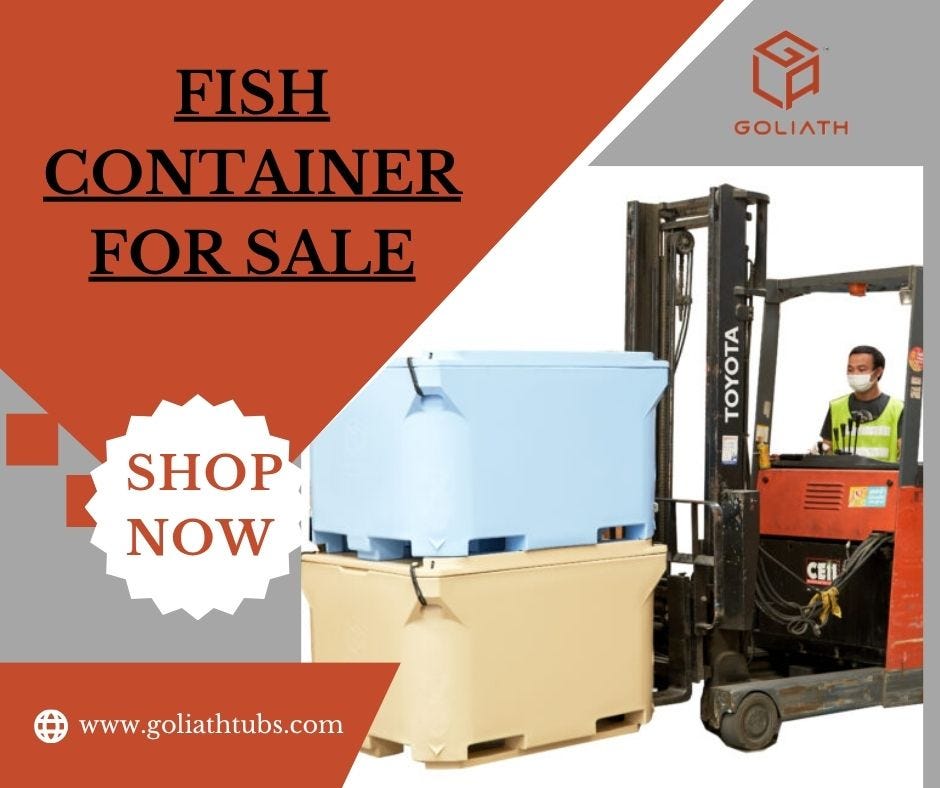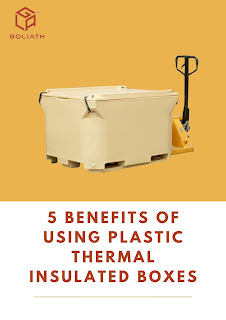Are Plastic Storage Containers Safe for Fish? Goliathtubs.

In the world of aquarists and fish enthusiasts, the safety and well-being of aquatic life is paramount. One common question that arises is whether plastic storage containers are safe for keeping fish. This blog delves into the considerations and best practices for using plastic storage containers, particularly focusing on products from Goliathtubs, a reputable brand in the industry.
Understanding Plastic Storage Containers.
Plastic storage containers are often used for various purposes, including organizing household items, storing food, and even housing fish temporarily. However, not all plastics are created equal, and it’s essential to understand the implications of using these containers for aquatic life.
Types of Plastics.
Most plastic containers are made from different types of plastic, identified by a recycling code. The most common types include:
Polyethylene Terephthalate (PETE): Generally safe for short-term use but can leach chemicals over time.
High-Density Polyethylene (HDPE): Considered safe and durable, often used for food storage.
Polyvinyl Chloride (PVC): Can release harmful chemicals, not recommended for fish.
Low-Density Polyethylene (LDPE): Safe for short-term use but not ideal for long-term housing.
Polypropylene (PP): Generally safe and resistant to chemicals.
When selecting a plastic container for fish, it’s crucial to choose one made from HDPE or PP, as these are less likely to leach harmful substances.
Goliathtubs: A Safe Choice.
Goliathtubs specializes in high-quality plastic storage solutions that are designed with safety in mind. Their products are made from durable, non-toxic materials that are suitable for aquatic environments. Here are some reasons why Goliath Tubs can be a safe choice for fish:
Non-Toxic Materials: Goliathtubs are made from food-grade plastics, ensuring that no harmful chemicals will leach into the water.
Durability: These containers are built to withstand various environmental conditions, making them ideal for both indoor and outdoor use.
Easy to Clean: Goliathtubs can be easily cleaned and sanitized, reducing the risk of harmful bacteria or algae growth.
Considerations for Using Plastic Containers.
While plastic containers can be a viable option for housing fish, there are several considerations to keep in mind:
Size: Ensure the container is large enough to accommodate the fish comfortably. Overcrowding can lead to stress and health issues.
Water Quality: Regularly monitor and maintain water quality, as plastic containers may not provide the same filtration and aeration as traditional aquariums.
Temperature Control: Plastic can retain heat, so it’s essential to monitor the water temperature to avoid overheating.
Light Exposure: Some plastics can degrade under prolonged exposure to sunlight, which can affect the water quality and the health of the fish.
Conclusions.
In conclusion, plastic storage containers can be safe for fish if chosen wisely and maintained properly. Goliath Tubs offers a range of products that are suitable for aquatic life, ensuring that your fish remain healthy and happy. Always prioritize the well-being of your aquatic pets by considering the type of plastic, size of the container, and overall water quality. With the right precautions, plastic containers can serve as a practical solution for temporary or even long-term fish housing.
For more information on Goliathtubs and their range of products, visit https://goliathtubs.com/

Comments
Post a Comment